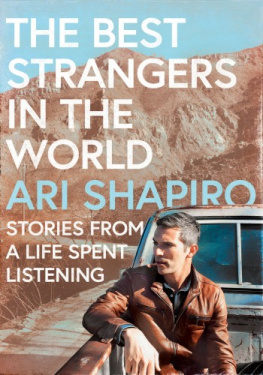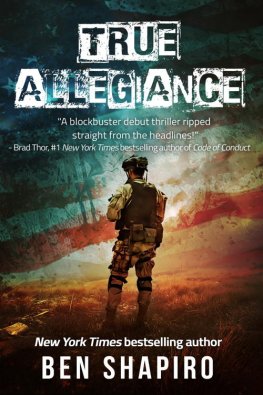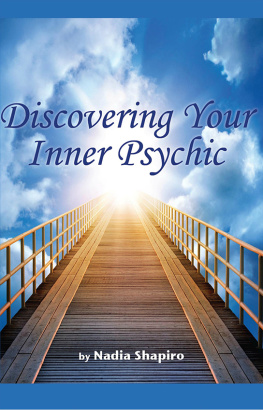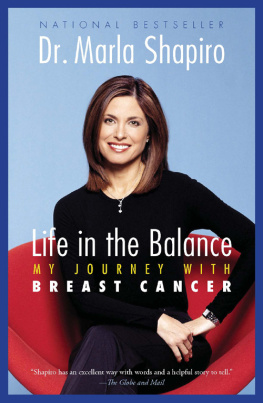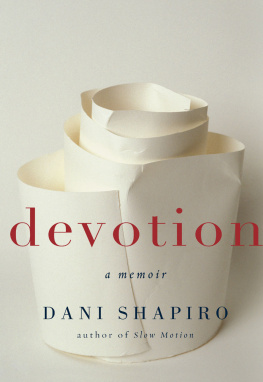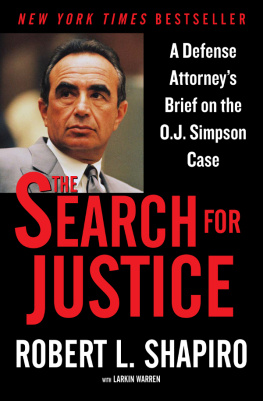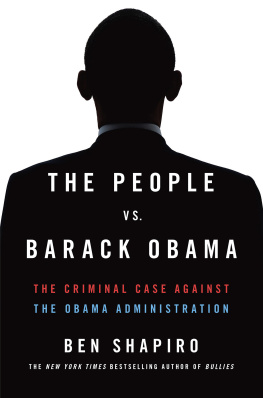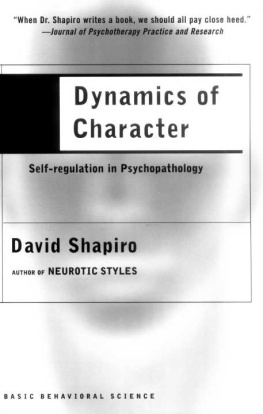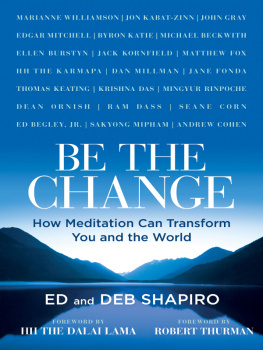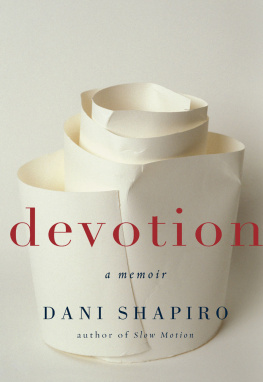For Mike, who doesnt read books but promises hell listen to the audiobook of this one
Contents
I became a public speaker in the first grade. In Fargo, North Dakota, my older brother and I were the only Jewish kids at our elementary school, and so, every year at Christmastime, he and I would go from classroom to classroom with a menorah and a dreidel, explaining to children descended from Scandinavian immigrants what Hanukkah was. It was my first experience presenting to an audience, and also my first experience as a sort of ambassadora storyteller, making the foreign seem a bit less strange.
Somehow, Fargo had not one but two synagogues in those days. My parents, who never wanted to be exclusionary, took us to the Reform temple on Friday nights and the Orthodox shul on Saturday mornings. My most vivid memories, naturally, are of the food. Dum Dum lollipops from old Joe Paper and pickled herring from a jar in the shul basement after services. My family kept kosher, so our meat was delivered once a month on a truck from Chicago that pulled into the synagogue parking lot, where we would pick it up and load it into a deep freezer in the garage. For Shabbat dinner every Friday night, my mom made matzoh ball soup and challah from scratch.
My parents both taught at North Dakota State University, my mother in communications and my father in computer science. Visiting their offices meant walking past pastures and waving at the grazing cows. My dad would take me to his computer lab, which in the 1980s was a room filled to the edges with one enormous machine. Id walk the perimeter of the hulking device and look at the blinking lights, wondering about the mysterious workings going on inside.
When I was eight years old, in 1987, we left Fargo for Portland, Oregon, as the city was drenched in the unselfconscious pre- Portlandia weirdness of the late twentieth century. If youve seen early Gus Van Sant films like My Own Private Idaho and Drugstore Cowboy , that was the vibe. Five years after we arrived, there was a ballot measure that would have allowed the state to, among other things, fire teachers for being gay. The language of Measure 9 lumped in homosexuality with pedophilia, sadism, and masochism. Most of us teenagers didnt know what those words meant; these were still pre-internet days. But thanks to the debate over Measure 9, everybody figured them out.
All the kids at my big, mostly white, suburban high school had an opinion about Measure 9, even though most of them had never knowingly met a gay person. They wore pins that read Nein on Nine or Straight but Not Narrow. (Congrats on your heterosexuality, bro!) That was the world into which I came out of the closet at the end of my junior year.
My decision to come out at sixteen wasnt spurred by a secret boyfriend or even a specific crush. I wasnt living a double life. I just decided that I didnt ever want to live a double life. Once I realized that I would have to come out to my parents and friends someday, I concluded that I would gain nothing by postponing the inevitable. The sooner I do this, the sooner it will be over with, I told myself. And so I ripped off the Band-Aid and asked my parents if I could talk to them about something. Their reaction was more open-minded than many coming-out stories Ive heard from the 1990s.
Are you sure?
Yes, Im sure.
Well, we still love you.
They asked if I wanted to see a therapist, I declined, and they decided that they would go see one themselves.
I dont know whether I was actually the first openly gay student at Beaverton High School, but nobody could remember a teenager admitting it before. There had been rumors about me, of course. Nothing specificI hadnt even kissed a boy before I came out. But I decided that the best approach was to drown out the whisper campaign with a bullhorn. When I showed up for the first day of school senior year, I plastered my locker with postcards of hunky menTom of Finland drawings and photographs by Herb Ritts and Tom Bianchi. On Halloween, I came to school in drag. After that, my calculus teacher stopped calling on me when I raised my hand in class. I also carried Mace, since not everybody was excited about having a gay classmate. Thankfully, I never had to use it.
On the weekends, I would go to an all-ages gay nightclub in downtown Portland called the City, where remixes of Whitney Houston and Madonna blasted through a haze of CK One and cigarette smoke. Afterward, my friends and I walked a couple of blocks through the inevitable Portland drizzle to a twenty-four-hour diner called the Roxy, for coffee and cheese fries.
My club look was harvested from the bins, the Goodwill surplus store in an industrial part of town. All the clothes that didnt sell at the regular Goodwill stores got piled into endless heaps and sold for ninety-nine cents a pound. My friends and I would spend hours rifling through blouses and blazers, kimonos and fake leather jackets, playing mix-and-match with no rules about what went together.
I paired polyester shirts with corduroy knickers or flowy culottes in paisley patterns. Add a ceramic pendant charm or a homemade hemp necklace woven with wooden beads, and I had something you could call an outfit. A strange outfit. But we were strange teenagers. To complete the look, I wore an ear cuff shaped like a small human, a mountain climber clinging to the side of my head. My hair, parted in the center, fell to my chin in a sort of Nirvana-meets-Prince-Valiant bob.
I guess today my fashion choices would be labeled gender nonconforming, but that wasnt a term we knew. Nobody around me identified as queer; calling yourself gay seemed radical enough. People routinely shouted faggot! from car windows as they drove past us on the street, and we reflexively replied with breeder! and a middle finger in the air. After weekends at the City and the Roxy, I would show up at Beaverton High Monday morning (strutting the halls in a Phantom of the Opera T-shirt over a red turtleneck and acid-washed jeans) for my packed schedule of honors classes and extracurricular activities.
It felt like a superpower, this ability to move between worlds. And by the time I graduated from Yale and became a journalist, I realized that these boundary-crossing skills I had picked up as the Jewish kid in Fargo and as the gay teen in Portland could serve me as a reporter. I found a career where I could perform those acts of translation, and be a liaison, for groups to which I had no personal connection beyond my journalistic interest. My microphone and headset served as a snorkel and mask. When I strapped them on, I could enter colorful hidden worlds that were invisible to people on the surface. And then came the important part: sharing those worlds with others.
* * *
MY FIRST JOURNALISM GIG, IN 2001, was as an intern to NPRs legendary legal affairs correspondent Nina Totenberg, who is still a friend and mentor. Shes the dean of the Supreme Court press corps and a force to be reckoned with. One of the most valuable lessons she taught me during my internship: Grow a pair!
Years after that internship, I became NPRs Justice correspondent, working alongside Nina to cover major investigations and federal trials. People would often ask, Do you want to be the next Nina Totenberg? I always gave the tongue-in-cheek reply, No, I want to be the first Ari Shapiro. I said it with a laugh, aware of how presumptuous it sounded. And I never would have admitted this at the time, but... I wasnt really joking. I didnt know what it might mean to be the first Ari Shapiro. But I knew that I wanted to do something that felt new.
Since 2015 Ive been one of the hosts of All Things Considered , a role in which Ive interviewed world leaders and narrowly avoided fatal explosions. And for more than a decade, Ive also toured the globe with the band Pink Martini, performing in venues from Carnegie Hall to the Hollywood Bowl. At first I didnt see a common thread. In fact, the band felt a bit like an affair I was having on the side. (Though really, how secret can the affair be when it literally plays out onstage in front of thousands of people?) My different projects felt meaningful, but I couldnt put my finger on what they shared. There was always an audience. There was always a story, whether it was told through journalism or music. And in the best moments, there was also connection.
Next page
